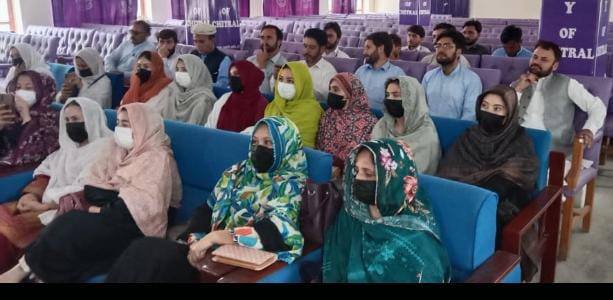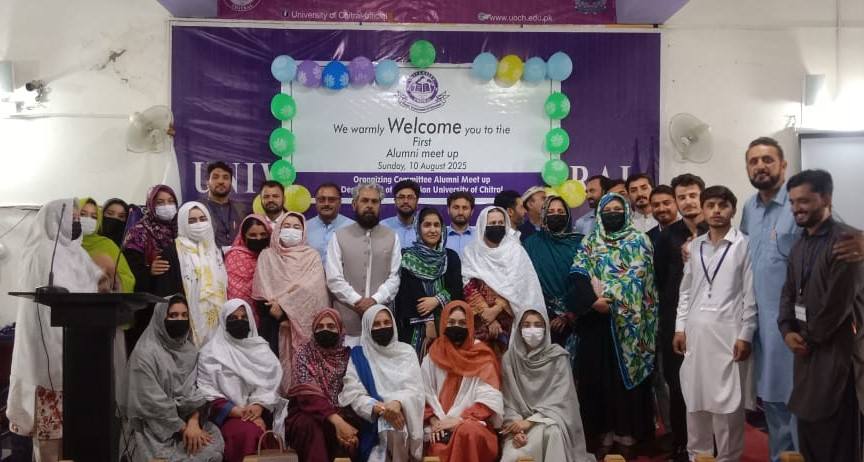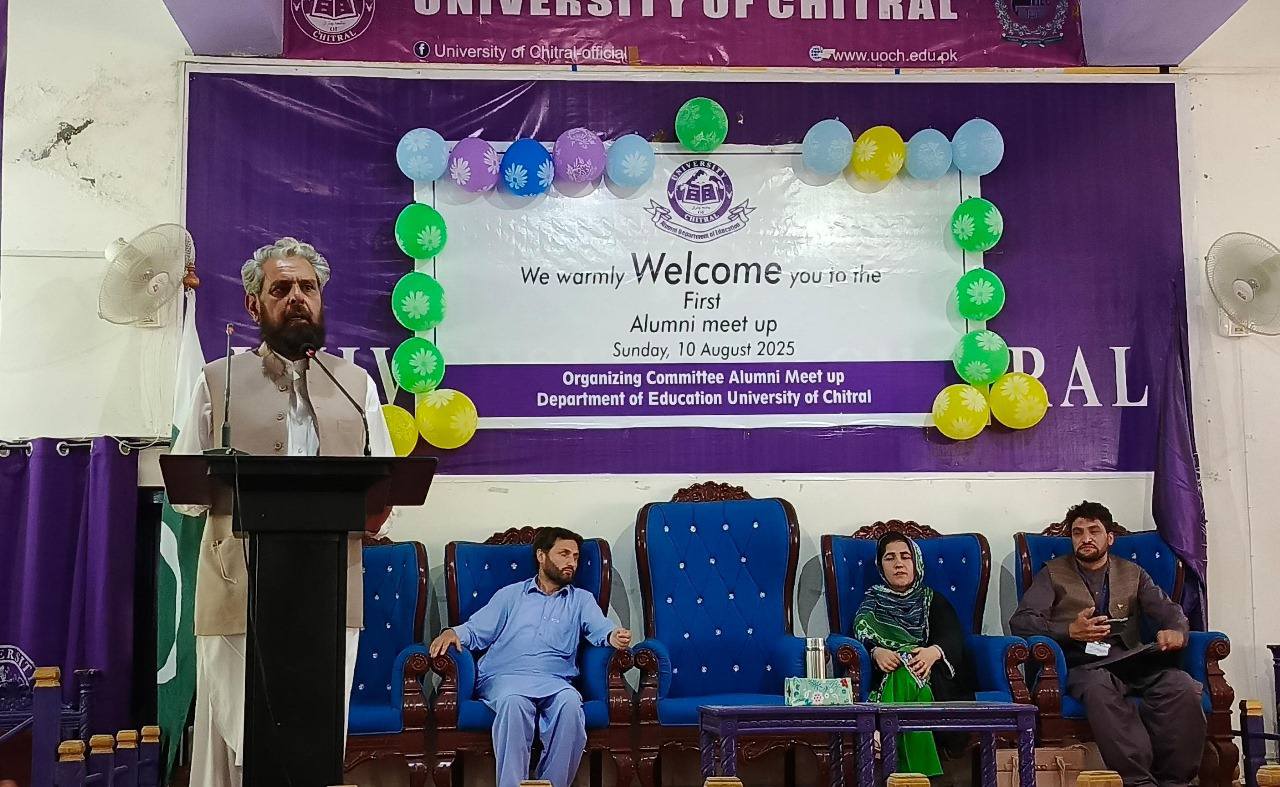A significant gathering of former graduates from the Department of Education at the University of Chitral took place this Sunday in the university’s Main Hall. The alumni convened to reflect on the evolving educational landscape, shared insights of respective professions, and contemporary challenges faced by today’s learners.
The program formally started with the recitation of verses from the Holy Quran followed by Naat-Shareef. The program attended by diverse professionals, faculty members, researchers, and students. They deliberately discussed the shifting dynamics in education, particularly the increasing influence of Artificial Intelligence (AI) and other technological advancements. Participants examined how these changes are reshaping the roles of teachers, the needs of learners, and the structure of classrooms.
The alumni addressed several critical areas affecting students and the education sector, including:
1. Career Choice – Emphasis was placed on the need for structured career guidance to help learners make informed, meaningful decisions about their futures.
2. Growth Opportunities – Discussed the importance of creating platforms and opportunities for professional and personal development, particularly for students from remote and underserved areas.
3. Learners’ Psychological Issues – Mental health challenges such as anxiety, stress, and low self-esteem were highlighted as major barriers to effective learning. The need for school-based counseling and psychological support systems was strongly emphasized.
4. Impact of AI and Technological Advancements – Participants shared insights on both the opportunities and threats posed by AI. While AI offers tools for personalized learning and data-driven instruction, concerns were raised about ethical considerations, digital divides, and the potential reduction of human interaction in education.
The alumni concluded the session by proposing a roadmap for continued dialogue, capacity-building workshops, and stronger alumni-university partnerships to contribute toward the region’s educational development.




